Last week, a young woman prayed in her local church service, “Please, help the people who are struggling to get what they need.”
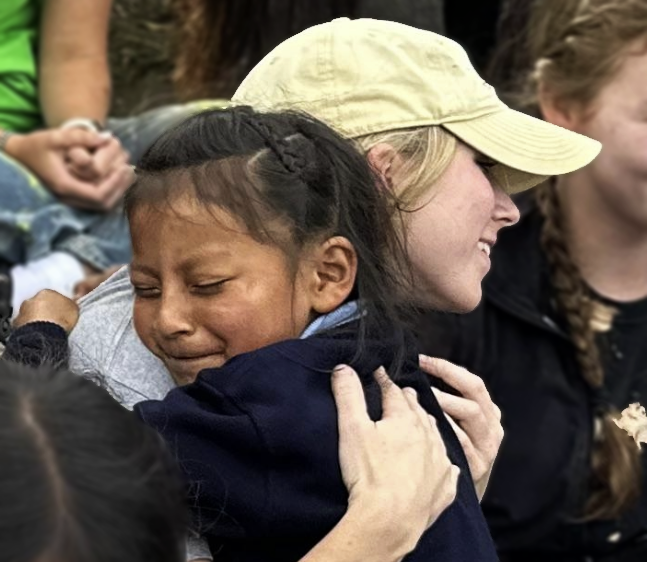
That is the same prayer of a Utah-based humanitarian organization who has committed to empower solutions.
Eagle Condor Humanitarian (ECH) works to alleviate generational poverty through programs which empower and educate. This “holistic” approach is a collaborative effort between the people who live within these communities and those who volunteer to help.
As posted on the first page of their website, “ECH provides training, tools and partnerships so people can devote their mental and physical resources to ascend out of poverty and increase their capacity to achieve self-reliance.”
The organization has only two part-time paid employees in Utah and seven small-salaried “boots-on-the-ground” program facilitators in Peru, Ecuador and Colombia. Melissa Webster, Director of Expeditions, explained that everyone else involved is strictly volunteer, including the executive committee and board members, who not only regularly donate to the cause, but also take turns hosting expeditions. She said everyone involved believes whole-heartedly in the program.
Rebecca Cressman, a member of the board of directors, agreed. “It’s because we all care and we want the money to go to the projects,” she said.
Additionally, volunteers who join expeditions are self-funded. Nearly all of the cost of participating goes toward supplies and other project related expenses.
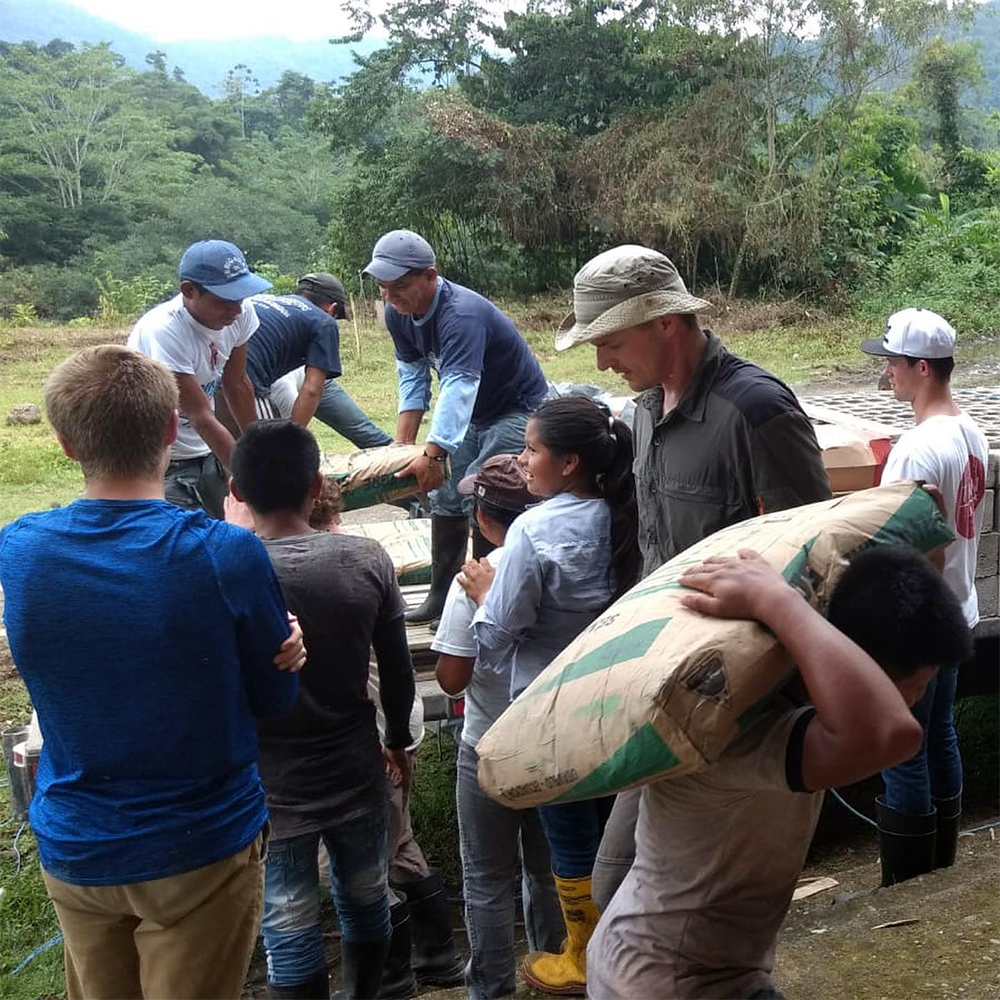
This policy keeps overhead markedly low. The non-profit watchdog group, Charity Watch, gives an A-grade to organizations who spend no more than 20% on administrative costs. However, ECH is well below that percentage with less than 5% overhead.
Before beginning any project, Webster or other members of ECH meet with leaders in communities which need help to assess what would best benefit the people.
“As Americans, you want to go in there and fix things in the way you think they need best,” Webster explained. “Sometimes what we might think they need is not actually what they need.”
Webster said they try to stay away from “helicopter humanitarian,” which leaves people with unsustainable solutions. They aim to provide solutions which empower the people to move forward on their own after ECH is gone.
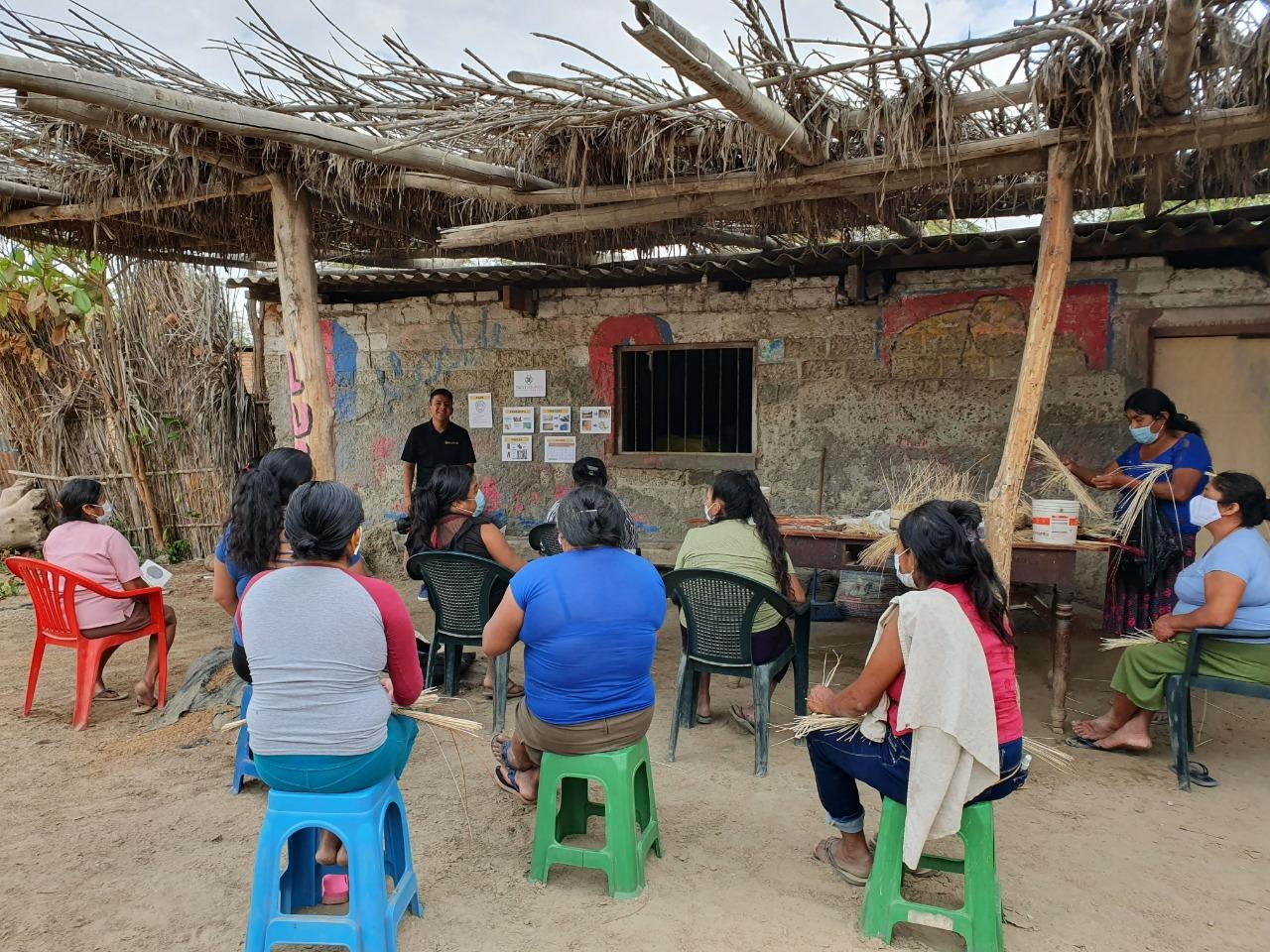
Self-Reliance Education
Five ECH self-reliance trainers (natives to Peru, Colombia and Ecuador) teach structured educational programs for adults. The free classes are taught four days each week for four months to groups of 20-40 people. The program is structured and teaches budgeting, saving, writing a business plan, marketing and how to allocate revenue toward future growth said Webster, who works closely with the trainers.
Self-reliance trainers teach students to incorporate self-reliance principles in their families and communities. As part of the requirement to graduate from the program, students also give back to the community through service projects.
Project Expeditions
When ECH directors met with leaders from the Peruvian village Miguel Seminario, they determined their greatest need was access to clean water. ECH provided supplies and volunteers. Villagers and volunteers spent a week digging three kilometers of trenches and laying pipe. However, Kristin Pickering, a member of the executive board, said they were faced with a sudden complication when the engineers the villagers had hired left before the project was complete.
“Villagers didn’t know what to do,” Pickering said. “Then one of our local guys brought the people all together and told them ‘you guys are capable. You guys are smart … we are going to figure it out together.'”
They worked together to finish the project. Everyone hugged and cheered when water flowed from the tap by sunset.
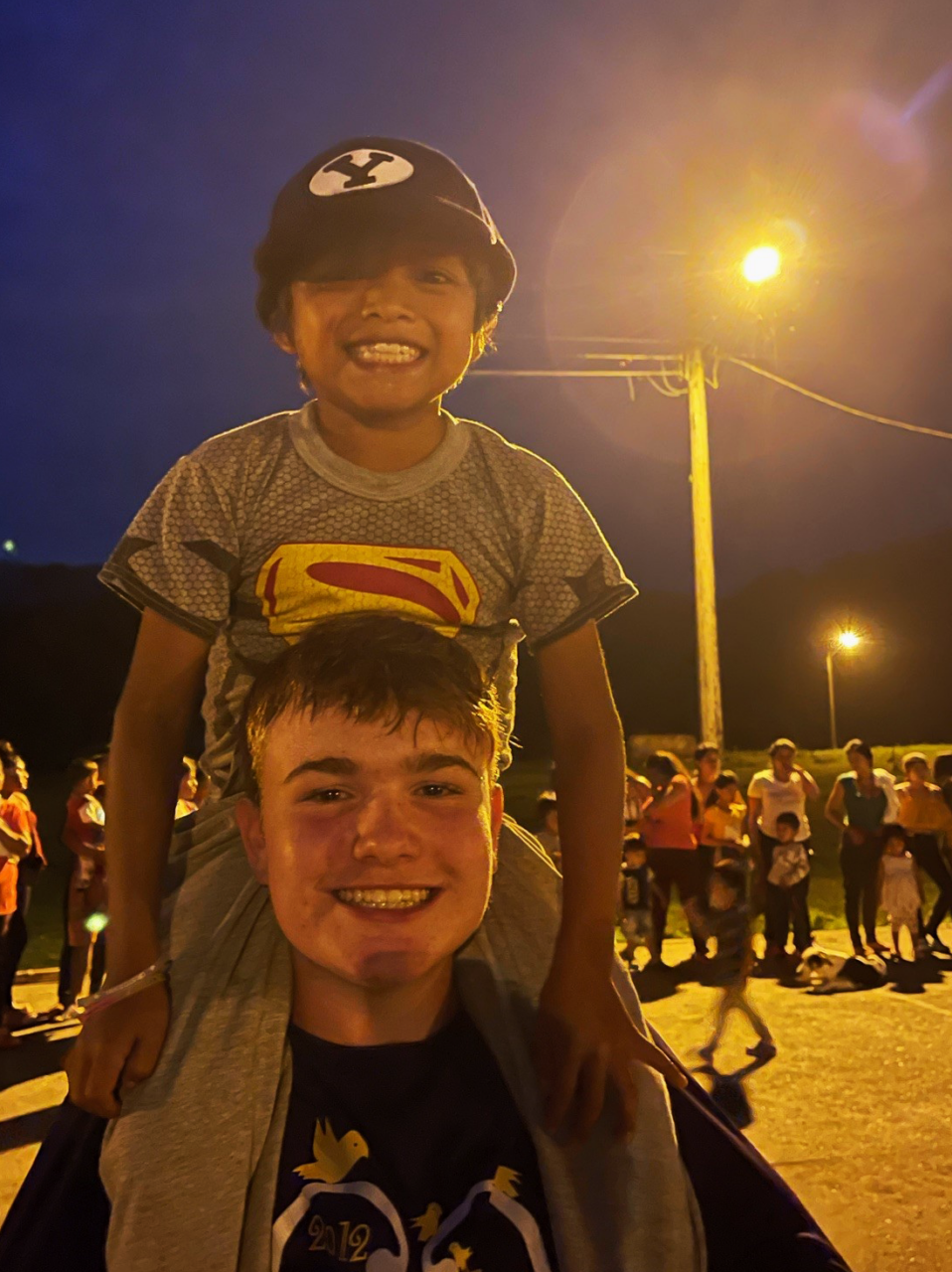
The service opportunities are also changing the lives of volunteers. Brody Gibbs, volunteer and BYU student, was part of a particularly difficult project (due to the remote location) in July 2021. He and other volunteers helped build two large greenhouses with the Chachi tribe, giving them the ability to control temperatures and grow needed vegetables which otherwise scorch in the heat. Gibbs said the Chachi’s willingness to work and gratitude for the needed help changed his perspective on life.
“You just don’t believe it until you see it,” said Brody Gibbs. “They gave us way more than we gave them.”
A community in Piura Peru now has water to grow sweet potatoes, corn, beans and lemons, after ECH and the local municipality helped a farmer’s association pipe in water and create a reservoir where the land was too dry to grow anything.
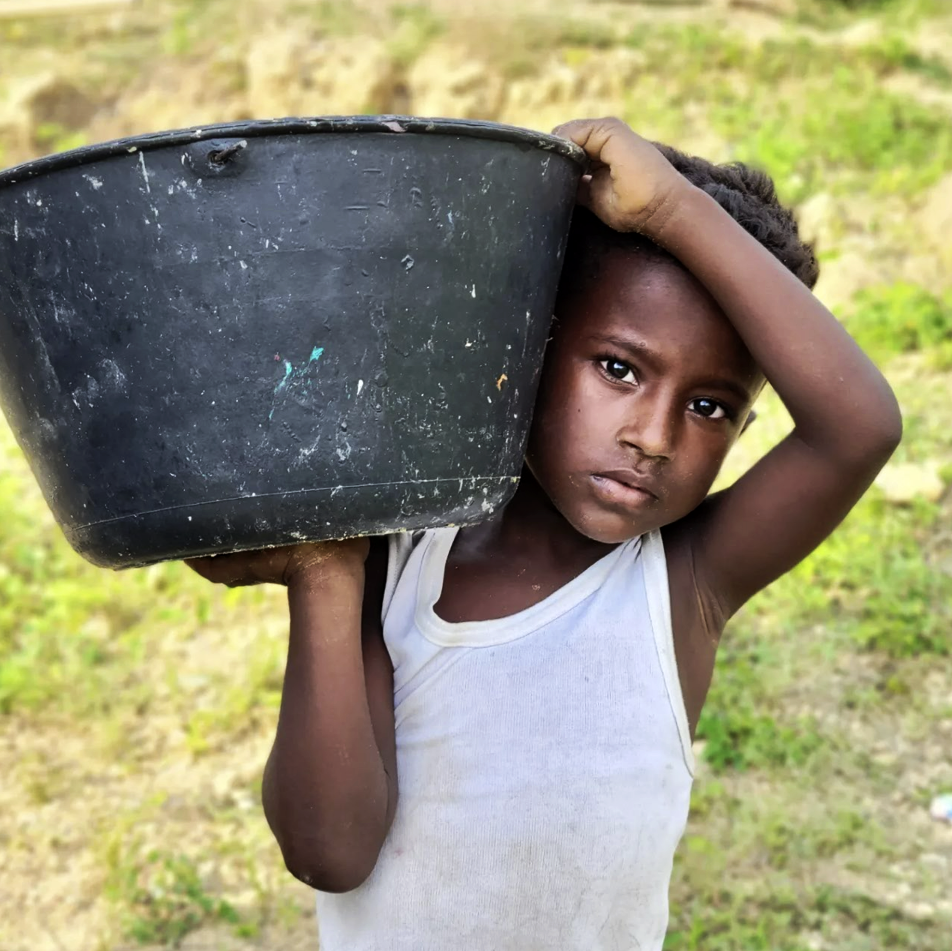
A functional cooking area with running water was needed for an impoverished community outside Cartagena, Colombia. A woman there noticed the children were going hungry while their parents were away at work. But with no ready access to water and only a pot over a fire, her efforts to help her community were challenged. Cressman said the hot and humid weather did not deter volunteers and residents, who came together to pass buckets of cement and sand hundreds of yards up a hill.
“The buckets traveled from an expedition volunteer to a Venezuelan refugee to the child of a Colombian,” Cressman said. “It took us all. It was beautiful.”
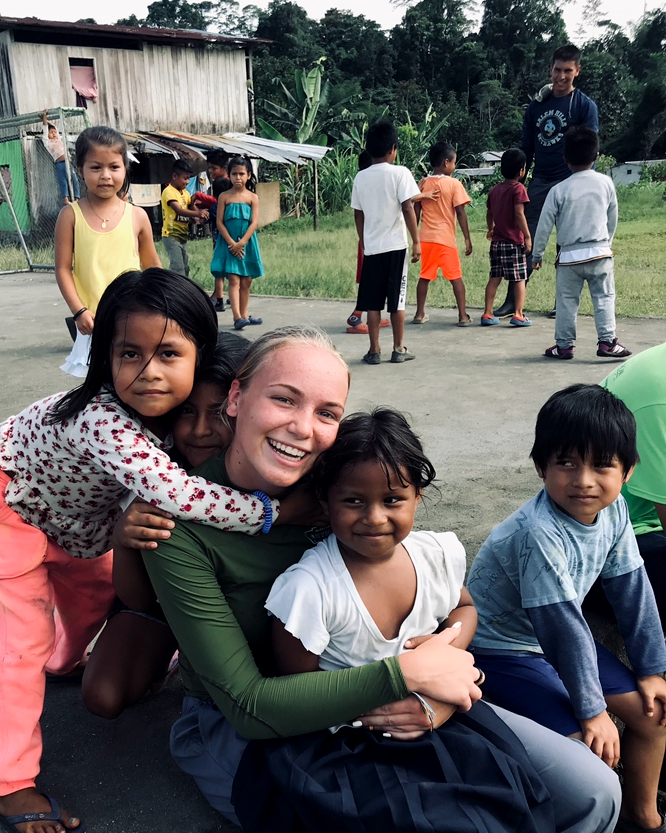
When Lydia Gibbs, Brody’s sister and a BYU student, volunteered in July 2019, she said she saw the same response of gratitude and willingness to be a part of solving a problem.
“Even the kids were totally helping us carry rocks and dig the holes,” Lydia Gibbs said. “It wasn’t just us serving them … all of us were working together to get the projects done.”
Physical Health Expeditions
Jan Felix, ECH Executive Committee Vice President and Medical Liaison, has helped conduct 37 medical expeditions where his nephew Brent Felix, a neurosurgeon, and other doctors have performed 296 cranial or spinal surgeries.
Many of the surgeries correct life-threatening scoliosis.
“Severe scoliosis will eventually close down and squeeze their heart,” Felix explained.
One young boy whose scoliosis had caused a hump on the back of his shoulder experienced even more than improved physical health. “After the surgery the boy was so relieved because he had been teased about his hump,” Jan Felix recalled.
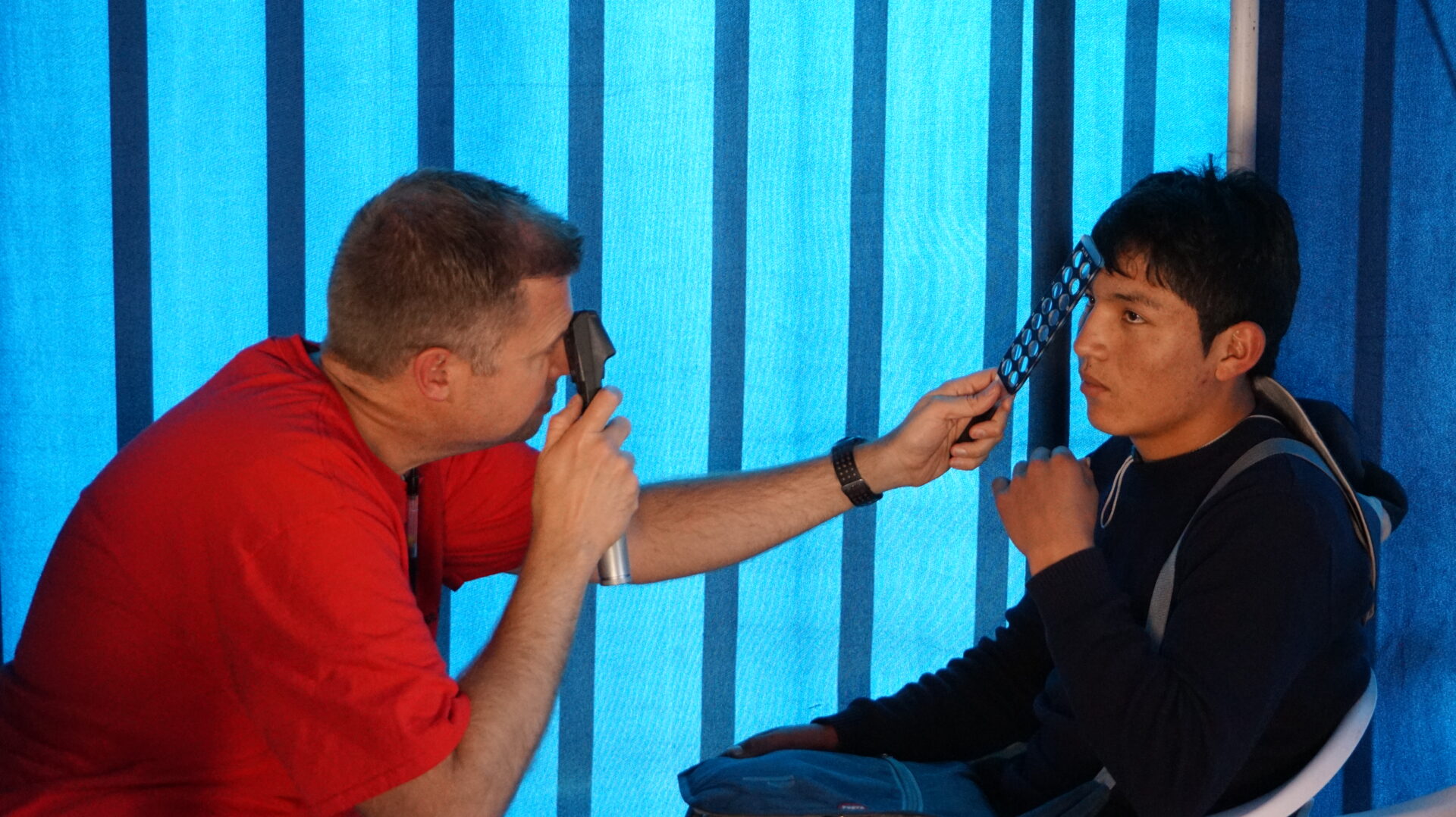
Roger Pickering, an optometrist, owner of Lehi Vision Care and husband of Kristin Pickering began annual humanitarian vision expeditions eight years ago. “We can go down and immediately help thousands of people,” he said.
Prior to his first trip, Dr. Pickering was concerned about leaving his busy practice for too long. Doctors and their assistants, like other volunteers, take time off work and pay their own way. Additionally, vision doctors bring their own testing equipment, medicines and glasses.
He said this is often a challenge when it comes to recruiting other doctors to join the effort. On his return flight from the first vision expedition, he felt profound gratitude for the opportunity to be able to help people with something they really needed.
Webster explained that providing the resources to improve health, educate and progress has empowered countless people to discover the strength within themselves and reach for a brighter future.
“Once you get down there, you realize how much can be done,” Kristin Pickering said.
For more information about the full program and how to get involved, visit Eagle Condor’s site.




